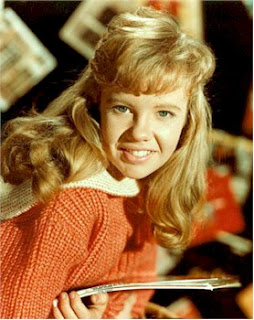Wise: Hello there, Werth. I'm assuming that the shamrocks and shillelagh are part of your tasteful nod to Saint Patrick's Day.
Werth: Faith an' Begorrah! Did ye not notice me green knickers, tailcoat and top hat?
Wise: Very subtle.
Werth: It's all to pay tribute to our favorite Irish actors of the silver screen. One of my favorite Irish actors has been giving us wonderful performances for almost 60 years. Apparently Peter O'Toole isn't sure if he was actually born in Ireland—he has a birth certificate from Connemara County, Ireland and Leeds, England. But with those sparkling eyes, effervescent charm and a name like O'Toole, there's no doubt where he gets his spunk.
Wise: Sounds like you're setting me up for a double O'Tendre.
Lean had proven his visual mastery in films like Summertime (1955) and The Bridge on the River Kwai (1957). But Venice and the jungles of Indochina wilt in the hot, stark sun of the desert in Lawrence. With scenery design by God, Lean's panoramic shots of the deserts of Northern Africa are breathtaking, truly putting any green-screen chicanery to shame.
Wise: Take that, Avatar!
Werth: The scene where a lone rider appears on the horizon, approaching the thirsty Lawrence at a well takes its sweet time in showing the unknown danger approach across a stunning, but godforsaken, vista. What makes Lawrence more than just an exotic travel magazine come to life is O'Toole. With his bright blue eyes shining, O'Toole produces an electric performance. Giant close-ups of his tanned, determined face give the sky and sand dunes a run for their money.
Wise: I'd walk 10,000 miles to get back to that.
His performance seems even more realistic when compared to his co-stars. Alec Guinness as Arab Prince Faisal in brown face and Anthony Quinn as Auda abu Tayi in said brown face with a phony hatchet nose chew the scenery in their typical fun fashion, but are too much to be believed.
Only then-newcomer Omar Sharif approaches O'Toole's sheer natural charisma in a film that visually and (with a soundtrack by Maurice Jarre) aurally overwhelms its audience, making you grasp for your green beer as the sun burns the sand.
Wise: Despite having such a temperate climate, Ireland has certainly produced some scorching hot stars. Consider Maureen O'Hara—her flaming hair and milky skin is the stuff of movie-going legend—who used her sexuality as just one of the tools in her fully stocked acting arsenal. For example, she isn't the star of The Parent Trap (1961), but she is the film's emotional core. Coming after a long run of playing exotic beauties and fiery foils to John Wayne, O'Hara steps away from her history of glamorous spitfires and into the more muted territory of Maggie McKendrick, a divorced mother of twin girls, Susan and Sharon (both played with impudent charm by Hayley Mills with the help of some split screen trickery).
The girls meet at summer camp after being separated by their parents as infants, and take an instant dislike to each other, their turbulent rivalry threatening to topple the camp into chaos. Only later do they discover their true relationship and immediately hatch a plan to switch places and scheme to bring their parents back together.
Werth: Giving children of divorced families everywhere the vain hope that Mommy and Daddy will get back together again after a bloody divorce.
Wise: While the first half of the film is a paean to the kind of kid-friendly hijinks that were (and continue to be) bread-and-butter to this type of Disney teen-aimed flicks, once O'Hara appears on screen, the film takes on a decidedly more adult tone.
Werth: Yeah. She shows her ankle.
Wise: When Susan arrives in Boston to meet the mother she has never known, she discovers a prim divorcée completely unlike the masculine and free-spirited father (Brian Keith) with whom she grew up. But through persistence (and an unfamiliarity with Brahmin social codes), she brings about a gradual defrosting, and by the time Susan and Maggie arrive in California to undo the switch, O'Hara has allowed her brittle shell to crack and allowed the more toothsome woman to emerge.
Werth: I like my gals toothsome.
Wise: The sensual rapport between Keith and O'Hara is frankly shocking in a kid flick, and the lustful gaze with which he appreciates her body would be lewd if it weren't comically mirrored by the droll local reverend (the marvelous Leo G. Carroll) doing the same thing. It is also part of the movie's theme—the reunion of halves split asunder—ostensibly about the shenanigans of two tween girls each finding her twin, but more deeply about the bond between two people united in love.
Werth: Wise, let's bond with a couple shots o' Jameson's.
Wise: Just pass me a Shamrock Shake and we'll be sure to reunite next week for more Film Gab.























